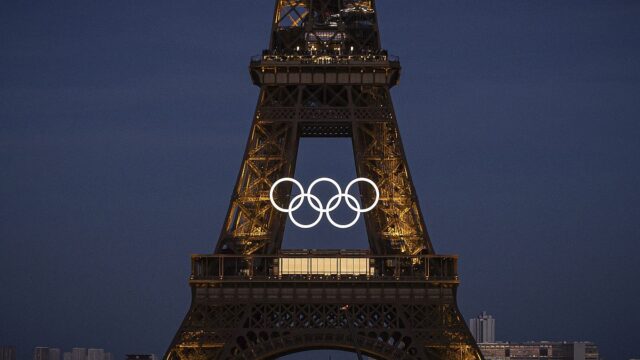The idea of a joint European team resurfaces on the occasion of the Paris Olympic Games. Such a team would compete with the United States and China, and reinforce a common identity. But its realization raises more questions.
It is an old story of European sports. The idea of presenting a EU team in the Olympic Games It is a constant. On the one hand, this “Europe team” would win the medals ahead of USA y China and, on the other hand, it would contribute to reinforce European sentiment between Member States and their citizens.
But the way things arethis option seems unthinkable according to the rules of the International Olympic Committee (IOC). The body that runs the Games refuses to allow flags other than those of the National Olympic Committees.
This happened “for example, in Tokyo 2021, where the Slovenian representative asked that the Slovenian delegation parade with a european flag because at that time they held the presidency of the European Union, but the IOC denied it“explains Carole Gómez, graduate assistant in sociology at the University of Lausanne.
However, the athletes were able to show off the Blue flag with the twelve stars. Italian fencer Elisa Di Francisca waved a European flag when she received her silver medal in Rio in 2016. gesture was praised at the time by the head of European diplomacy, Federica Mogherini, and the president of the European Parliament, Martin Schulz.
The president of the European Commission in 2004, Romano Prodi, had already asked athletes from the Member States to raise the EU flagbut without success.
Sport and identity
He sport plays a big role in the development of the national identities, since it makes known a State, a flag and an anthem, and arouses enthusiasm. Therefore, it helps build a collective memory.
However, “the official history of the European Union and sport is relatively recent,” explains Carole Gómez. “Since 2009, and in particular since the Treaty of Lisbon, this has been formalized interest in sportswhich has become a work axis“.
This interest can take shape in the joint organization of competitions between different actors or in the development of sport within the framework of Erasmus +. Besides, the UE wear some ten years developing the sports diplomacy.
But beyond this initiative, Carole Gómez believes that the creation of a joint team not interested at 27. “Having a European team would mean having to make selections and disqualifications among all the best European athletes. And so, for example, instead of having a podium with a Greek, a Spanish and a Slovenian, we would actually have a single representative of the European Union“, he explains. Although he acknowledges that on paper the project”would be beautiful from the symbolic point of view“.
He prefers the idea of calculating the total number of medals won by the EU and debate other ways to consolidate this common European identity.
“In the framework of the Olympic and Paralympic Games in Paris, Emmanuel Macron requested that the French flag and the European flag be displayed side by side as the host country,” explains Carole Gómez. This request was accepted by the IOC. “In the Olympic Village or in the competition venues, this double flag may be exhibited. And that strikes me as something that would be interesting in terms of length as well,” she continues.
Italy, with Milan Cortina, and France, “subject to conditions”, with the French Alps, will host the Winter Olympic Games in 2026 and 2030. These events will provide the opportunity to reflect about the idea of a common European identity on the sport.







